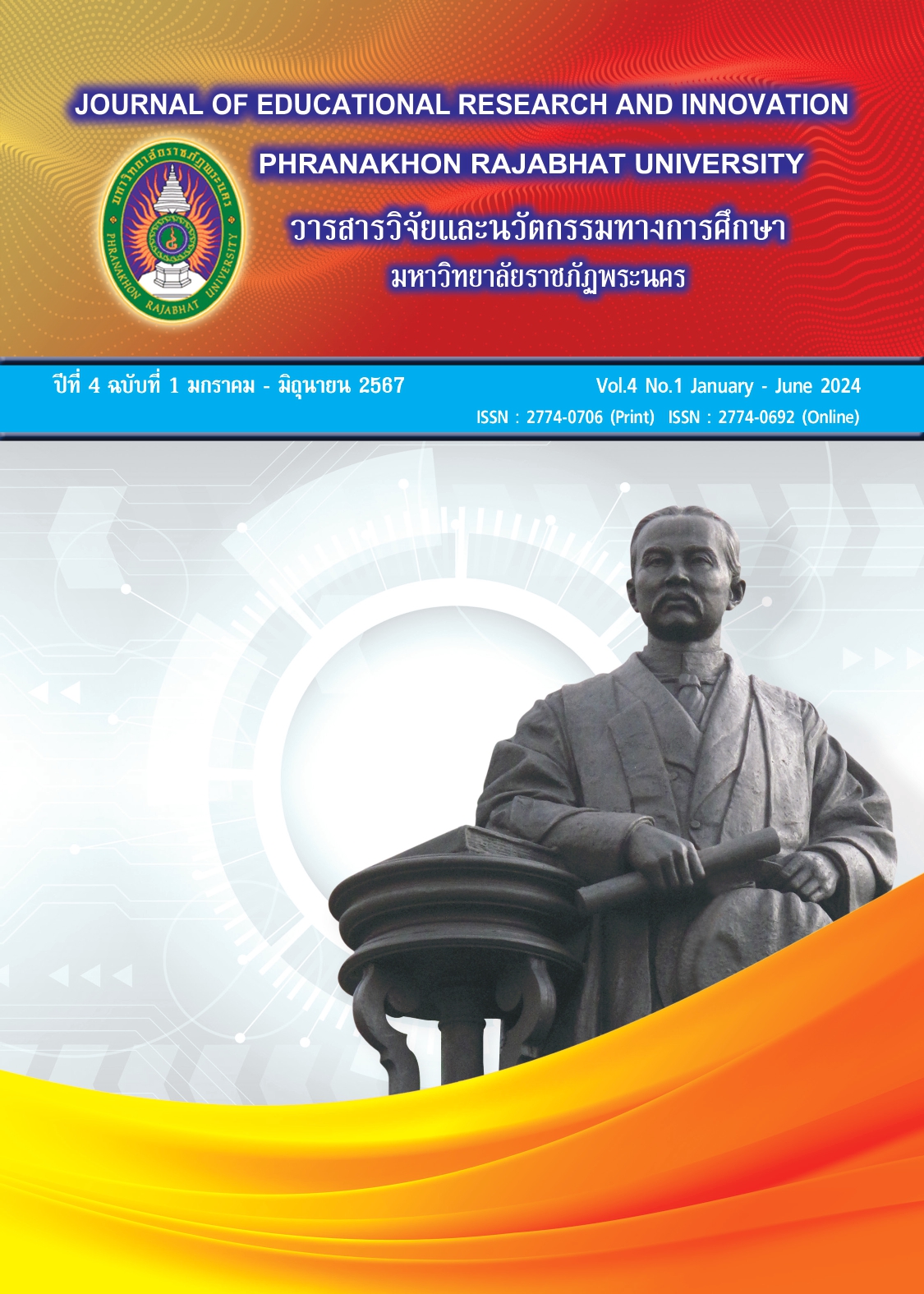TOWARDS SUSTAINABLE URBAN ARCHITECTURE: A HOLISTIC APPROACH TO ENVIRONMENTAL MANAGEMENT EDUCATION
Main Article Content
บทคัดย่อ
The study aimed to enhance educational frameworks and industry practices within urban architecture. It was guided by three main objectives: exploring urban environmental management models in Thailand and internationally, identifying the knowledge gaps and needs of students and relevant stakeholders, and creating customized teaching guidelines. The research utilized a qualitative approach, conducting surveys with 50 urban architecture students and 50 executives from both the public and private sectors involved in urban management. Through secondary data analysis and these surveys, the study investigated the contrasts between localized Thai management strategies, which emphasize on community involvement, and the broader, globally accepted standardized models proposed by the Global Development Research Center (GDRC). This analysis highlighted significant differences in perspectives on urban environmental management, with students showing a broader interest in diverse environmental aspects compared to the more focused concerns of industry agencies. These findings underscore the essential need to integrate local and global management approaches to develop comprehensive, adaptable, and sustainable urban environmental strategies. Such integration is vital for aligning immediate practical needs with long-term educational goals, thus enhancing the capacity for sustainable development in urban environments.
Article Details
เอกสารอ้างอิง
Asilsoy, B., Laleci, S., Yildirim, S., Uzunoglu, K., & Özden, Ö. (2017). Environmental Awareness and Knowledge among Architecture Students in North Cyprus. International Journal of Educational Sciences, 19(2–3), 136–143. https://doi.org/10.1080/09751122.2017.1393957
Brundtland, G.H. (1987). Our Common Future: Report of the World Commission on Environment and Development. Geneva, UN-Dokument A/42/427. Retrieved from http://www.un-documents.net/ocf-ov.htm. [2023, 30 Apr.]
Carter, J. (1995). The Potential of Urban Forestry in Developing Countries: A Concept Paper. Roma: FAO, Cost Action E12, 1999. Research and Development in Urban Forestry in Europe, Country Reports. ISBN: 9282875784. Retrieved from https://dergipark.org.tr/en/pub/kastorman/issue/33164/266134. [2022 30 Apr.]
Committee for solving problems in compliance with Section 67, paragraph two, of the Constitution of the Kingdom of Thailand. (May 10, 2010). Results of the Committee's Work on Problem-Solving Regarding Article 67 Paragraph Two of the Constitution of the Kingdom of Thailand on Urban Planning. Retrieved from http://ftiweb.off.fti.or.th/demo/6101/userfiles/files. [2023, 30 Apr.]
Domestic Tourism Business Association. (n.d). Sustainable Tourism. Retrieved from https://www.adt.or.th/page/sustainable-tourism/en. [2023, 30 Apr.]
Industrial Environmental Development Center. (2016). Eco-Industrial City. Retrieved from http://ecocenter.diw.go.th/index.php/metric-information/source-of-indicators-3. [2023, 30 Apr.]
Jóźwik, R.; Jóźwik, A. (2021) Influence of Environmental Factors on Urban and Architectural Design—Example of a Former Paper Mill in Nanterre. Sustainability 2022, 14, 86. Retrieved from https://doi.org/10.3390/su14010086 [2024, 8 May]
Liu, H., Jia, Y., & Niu, C. W. (July 2017). "Sponge city" concept helps solve China's urban water problems. Environmental Earth Sciences, 76(14). DOI: 10.1007/s12665-017-6652-3.
National Economic and Social Development Office. (2020). Strategic Environmental Assessment Guidelines. Bangkok: Strategic Environmental Assessment Guidelines. Retrieved from https://www.nesdc.go.th/. [2023, 30 Apr.]
Office of Natural Resources and Environmental Policy and Planning. (November 27, 2019). Environmental Impact Assessment. Retrieved from https://www.onep.go.th/. [2023, 30 Apr.]
Prachachat Business Newspaper. (April 18, 2019). Royal Science Solving the Comprehensive Water Problem. Retrieved from https://www.prachachat.net/columns/news-316508. [2023, 30 Apr.]
Tangtham, N. (2016). Royal Science: "Natural Resources: Soil, Water, and Forest." Retrieved from http://www.forest.ku.ac.th/webdev3/newsuploadfile/744-2016-12-20_165422.pdf. [2023, 30 Apr.]
The Global Development Research Center. (n.d.). Urban Environmental Management. Retrieved from http://www.gdrc.org/uem/. [2024, 10 Dec.]
Viset, S., & Boonserm, N. (2004). Community-Based Watershed Management. Bangkok: Community Learning Enhancement Project for Community Well-being (CLEP).


